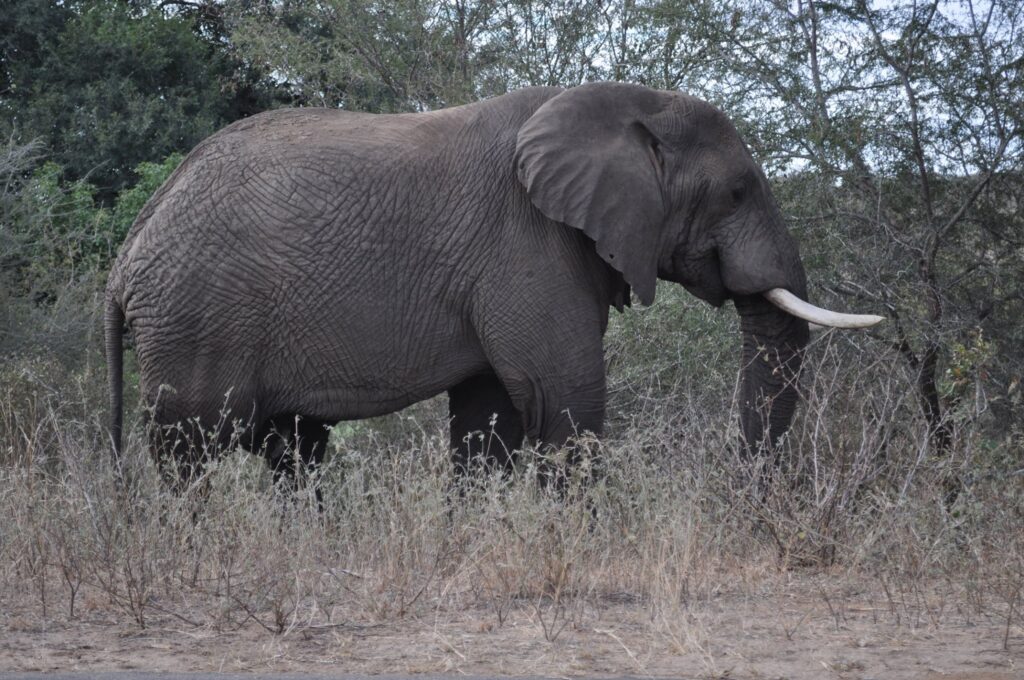Elephants are known as ecological engineers. From seed dispersal to water cycle regulation and habitat creation, numerous species rely on elephants for survival. Unfortunately, like Dancing Bears, elephants have been exploited and domesticated for the cruel tourism industry. Elephants have one common benefit for both the environment and humans – elephant dung. Other than providing shelter and foliage for numerous insects (including the dung beetle), elephant dung is heavily utilized by humans. An individual elephant can produce up to 100kgs of dung in a day. The multiple uses of dung should act as an incentive for elephant conservation efforts. Here, we discuss the uses of elephant dung.

1. Ecofriendly Paper
Elephant dung has high fibre content. This can be attributed to the elephant gastrointestinal tract which cannot efficiently digest fibres, explaining why only 40% of the food consumed by elephants is actually digested. For this reason, elephant dung can be used as pulp to make papers. It is thought that the dung produced by an individual elephant in a day is sufficient to craft 115 sheets of paper.
A company, Haathi Chhap, which produces cards, notebooks, and photo albums from elephant dung has met with much success. Founded in 2004, the company quickly expanded. By 2011, they had 40 outlets across India with an annual revenue upward of Rs. 35 lakhs. Such businesses are also popping up in Sri Lanka, Thailand and Africa.
2. Coffee and Alcohol

As disgusting as it may seem, elephant dung is often used to make coffee and alcoholic beverages. Coffee beans are collected from dungs and are then washed and roasted by brewers. This expensive coffee lacks a bitter taste. In fact, the coffee has a unique flavour which tastes like chocolate and a tinge of cherry. Elephants are not the only animal whose dung is utilized to produce coffee. The world’s most expensive coffee, Kopi Luwark, is produced from coffee seeds collected from Palm Civet dung in Indonesia. However, unlike the elephant coffee industry, the production of Kopi Luwak is controversial due to reports of animal cruelty.
Meanwhile, by fermenting the same elephant dung coffee beans, a Japanese Brewery produced a unique beer called Un, Kono Kuro. The beer, like the coffee, has a slight taste of chocolate.
Both of these beverages are high end products. It takes around 33 kgs of coffee seeds to produce 1 kg of brewery. It is no wonder a cup of this coffee costs US $50.
3. Non Polluting Mosquito Repellent
Mosquitos are a frustrating nuisance in the tropical regions that elephants inhabit, and most mosquito repellents are expensive and unnatural. Elephant dung on the other hand, is a cheap, natural alternative which causes minimal pollution. The dung barely crosses 10 rupees a kilogram. Burning elephant dung is an effective mosquito repellent replacement.
4. Traditional Healing
Elephants have the most diverse plant diets. In fact, in some areas, they are known to consume almost 500 species of flora. Given the medical value of tropical flora, it is no surprise that elephant dung also has healing properties. It has been proven that the smoke of burning dung can cure headaches and toothaches. Bleeding noses and sinuses can also be cleared using elephant dung.
5. Road Repair
Elephant dung is rich in fibers. This allows dung to replace filtering sand, soil and sieve in road repair works. This prevents the polluting effects of surface runoffs during rains.
6. Research
Excretions of any kind form a crucial part of wildlife forensics. Elephant dung is no different. In fact, scientists often use elephant dung to test the concentration of stress and reproductive hormones. This provides insights into the health of captive elephants, which can hence determine future maintenance procedures.
7. Fertilizer
In the wild, elephant dung is crucial for nutrient recycling. It is no surprise, therefore, that it is used as a fertiliser in agriculture. The limited digestion of food by elephants makes dung a superior and natural form of fertilizer. In fact, a farmer in Kerala reported that his weekly organic farming produce skyrocketed to 500kgs, once he started utilizing elephant dung. However, the process of creating compost from elephant dung is far more complicated than it is for cow dung. As not all farmers have access to elephant dung, it is not utilized as extensively as it should.
8. Biogas
In the upcoming era of renewable energy, elephant dung has a bright future. Like the waste products of most herbivores, elephant dung can be used to generate gas for stoves, heat and electricity. The usage of elephant dung will reduce the dependency of rural communities on firewood, which is causing immense habitat degradation.

So there you have it. Eight of the most common uses of elephant dung. The market for elephant dung is thriving! Unfortunately, some of this can be attributed to rumour mongering during the pandemic. Some claim that elephant dung can cure the coronavirus, hence spiking the demand of this waste product. However, there is no scientific evidence for these claims, and the rumour (thankfully!) quickly died down. Hopefully, elephant dung can contribute to local economies, and hence act as a tool to foster human-wildlife coexistence! This is necessary as the IUCN Red List for Threatened Species raised alarms about the future of these gentle giants!
Help us Help Them! Think Wildlife Foundation is a non profit organization with various conservation initiatives. Our most prominent campaign is our Caring for Pari intiative. Pari is a rehabilitated elephant at the Wildlife SoS Hospital. 25% of the profits from our store are donated to the elephant hospital for Pari. Other than buying our wonderful merchandise, you could donate directly to our Caring For Pari fundraiser.
